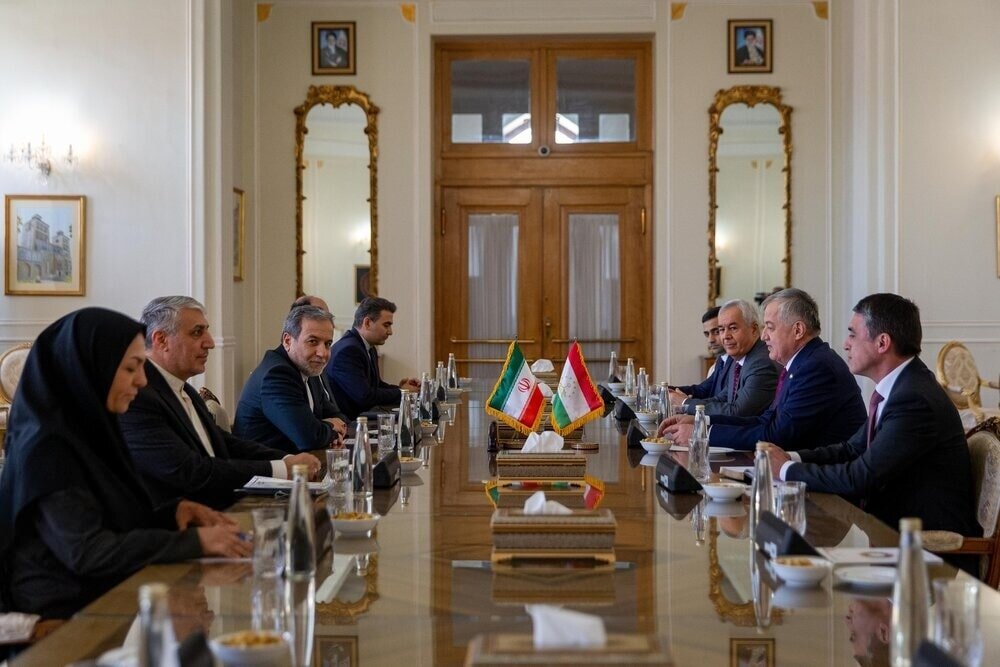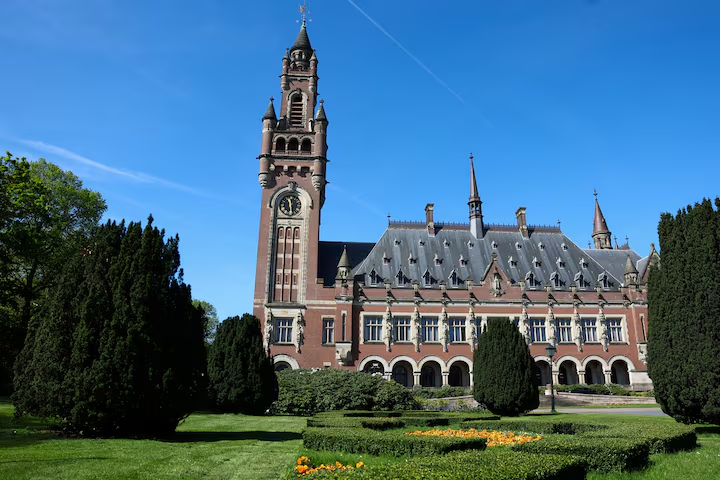In a significant diplomatic development aimed at bolstering regional cooperation, the foreign ministers of Iran and Tajikistan convened in Tehran on Saturday, reaffirming their shared commitment to strengthening bilateral relations. The high-level meeting underscored growing political, economic, and cultural coordination between the two Persian-speaking nations amid evolving geopolitical dynamics in Central Asia.
Iran’s Foreign Minister Hossein Amir-Abdollahian welcomed his Tajik counterpart, Sirojiddin Muhriddin, as part of a broader agenda to deepen strategic ties. The discussions revolved around enhancing trade, investment, transport infrastructure, and cultural exchange. Both sides expressed satisfaction with the trajectory of their relations and stressed the importance of maintaining momentum through practical cooperation.
Amir-Abdollahian emphasized that the two countries share “deep-rooted historical, cultural, and linguistic affinities” that form a natural basis for closer political collaboration. “Tehran sees Dushanbe not just as a neighbor, but as a partner in building regional stability and progress,” he said, highlighting shared security concerns and economic opportunities in the region.
Muhriddin echoed similar sentiments, stating that Tajikistan values Iran’s role in regional affairs and is eager to expand cooperation on multiple fronts, particularly in energy, transportation, and education. He noted that both sides should prioritize completing joint infrastructure projects, including railway and road connections that would significantly boost connectivity between Iran, Central Asia, and beyond.
In a joint press conference following the talks, the foreign ministers announced the signing of a memorandum of understanding (MoU) focused on consular affairs, which is expected to simplify visa processes and facilitate greater people-to-people interaction. They also revealed plans to hold a joint economic commission in the coming months, where trade and investment opportunities will be more thoroughly addressed.
One of the key focal points of the meeting was regional security. Both sides expressed grave concern over the situation in Afghanistan, especially the growing threat posed by extremist groups operating across Central and South Asia. Amir-Abdollahian stressed the necessity of fostering regional mechanisms to tackle cross-border terrorism, drug trafficking, and instability emanating from Afghanistan’s ongoing humanitarian and political crisis.
Muhriddin, for his part, reiterated Tajikistan’s call for an inclusive government in Afghanistan that represents all ethnic and political groups. He also appreciated Iran’s humanitarian support for Afghan refugees and urged greater international cooperation to deal with the consequences of the crisis.
The two diplomats further discussed cultural and scientific cooperation. Iran offered to expand scholarships and academic exchanges for Tajik students in Iranian universities, while also proposing cultural festivals and joint media productions to promote mutual understanding. Both ministers underscored the role of culture in bridging gaps and enhancing diplomatic goodwill.
Economic cooperation was a dominant theme. Iran expressed its readiness to increase energy exports to Tajikistan and help develop hydroelectric projects. Muhriddin invited Iranian companies to participate in Tajikistan’s development initiatives, especially in sectors like mining, agriculture, and textile manufacturing.
Additionally, the foreign ministers touched on multilateral forums, with Iran and Tajikistan reiterating support for platforms like the Shanghai Cooperation Organization (SCO), where both countries are members. They also called for a more inclusive and multipolar international system, emphasizing that regional cooperation must be based on mutual respect and sovereignty.
The visit marks another step in Iran’s broader diplomatic strategy of solidifying ties with neighboring and regional countries, particularly amid ongoing tensions with the West. In recent years, both Iran and Tajikistan have taken strides to repair previously strained relations, and this latest meeting appears to consolidate that progress.
As the region grapples with shifting power balances and external pressures, the Tehran-Dushanbe axis appears poised to play a more influential role. With tangible agreements, shared concerns, and common cultural roots, both nations have set a course for deeper alignment in the years ahead.
The meeting concluded with both ministers reaffirming their intention to stay in close contact and to advance the agreements reached during this latest round of talks. The path forward, they agreed, lies in concrete collaboration backed by political will and strategic vision.
Source: Tehran Times



